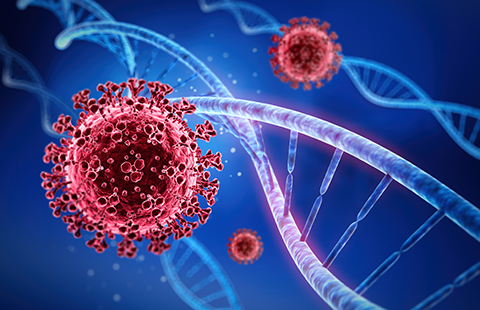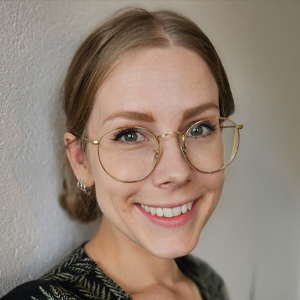What we lost: Two early-career researchers share their pandemic experiences
The COVID-19 pandemic continues to affect the scientific community with delays in research that are especially challenging for early-career researchers and that may have an impact on their careers.
Pandemic-related disruptions and delays in the delivery of reagents and instruments also continue to impede research. Experimental biologists and physiologists who rely on intercontinental or international shipments of reagents have been particularly affected by supply-chain disruptions.
The process of generating genetic animal models can take months or years, so animal physiologists have suffered delays in their research projects.
Here, we share with you our continuing stories — we know they are two among many — and advocate for a policy that accounts for the time lost by early-career scientists.
Anand: Stymied and stranded
When I joined the Eidgenössische Technische Hochschule Zürich in May 2019 as a postdoc in adipose physiology and metabolism, I quickly got to work refining our hypothesis. I was looking to uncover alternative mechanisms of heat generation in the adipose tissue that help to maintain body temperature during shifting outdoor temperatures. We soon realized that to validate our hypothesis, we needed to genetically modify mice in several ways.
We did not want to change the whole-body physiology of experimental mice as it would lead to unrelated effects. Instead, we aimed to target adipose tissue that too in a way that we can alter the particular gene once the mice are grown up (using a so-called ERT-Cre-LoxP system). To achieve this, we needed two mouse models for which we contacted a pioneering lab at Harvard in November 2019. By January 2020, we had completed all necessary paperwork, including a material transfer agreement, setting the stage for delivery of two genetically altered lines in February or March 2020.
These mice were not delivered until September 2020, setting us back about nine months. Other COVID-19-related delays, burnout and logistical restrictions within the animal facility further impeded our progress.
It took us nearly two years to get our first experimental mice. Our most complex mouse model harbored targeted mutations in four different genes. Producing a mouse with a single targeted mutation typically requires about six months. Adding more mutations exponentially increases the complexity and time. And during the early COVID-19 wave, we had to euthanize experimental mice that had been on a high-fat diet for months.
In another layer of complexity, I found myself stranded on a different continent.
In February 2020, I went to India to visit my family. A month later, as countries around the world enforced prolonged nationwide lockdowns and travel restrictions intensified, I was unable to return to work for several months. This led to significant setbacks in my research.
In Switzerland, non-EU postdocs are restricted to annual contracts, requiring annual permit renewals. Just before I left, I had signed a new contract, and while I was in India, my residence permit expired.
I tried to work remotely — writing grants, meeting online with collaboration partners, co-authoring a review and conducting literature surveys that helped refine my hypothesis. However, the lack of tangible progress greatly impeded the advancement of my ongoing projects.
Tina: Stymied and sick

My COVID-19 experience has been an emotional roller-coaster with a mental, physical and emotional toll.
I came to work at the Eidgenössische Technische Hochschule Zürich in June 2020 as a postdoc in adipose tissue physiology and metabolism. I was healthy and had a thriving life. One fine morning in April 2022, I developed a sore throat and a persistent cough. I tested positive for COVID-19.
My illness followed a normal trajectory, and, in a week or so, I felt better. My life was getting back on track when three weeks later I felt another wave of fatigue and I had difficulty breathing. These symptoms came and went, but I could not return to normal life.
Persistent viral load had been reported in some people, so my doctors repeated the test, but the nasal and throat samples were negative for COVID-19. I continued to feel weak and fatigued.
After a few months, the doctors determined that, although my respiratory tract was free of the virus, SARS-CoV-2 had been hiding out in my lungs. Meanwhile, I had endured months of COVID-associated pneumonia. Without being able to move, eat or breathe properly, I was hospitalized in a deteriorated state.
As a young, otherwise healthy woman without any known underlying conditions, I did not expect the infection to be so severe. I lost six months of valuable work time to illness, hospitalization, treatment and recovery.
After my physical recovery, brain fog and issues with memory and concentration remained, even to this day, and had a negative impact on my research. I received tremendous private and professional support, but the added mental strain was substantial.
The value of support
We know we are not alone in these struggles. Many scientists have experienced similar or even worse situations. We have learned the immense importance of having an unswerving mentor, a supportive institution and an understanding civil society. Throughout those challenging months, our supervisor, Christian Wolfrum, stood by us. Recognizing our circumstances, ETH Zürich continued to pay our salaries. The local government authorized Anand’s return to Switzerland although embassies were not operating normally. All this support kept us motivated, and we are filled with gratitude. We are determined to bounce back with vigor and passion.
However, we must acknowledge and honor other scientists who were victims of pandemic circumstances. To prevent them from facing penalties that result from situations beyond their control, we believe institutions and recruiters must establish a formal process that takes into account the research time that was lost and recognizes the subjective impact of the pandemic on so many individual careers.
We propose a framework that mirrors existing parenthood breaks. All academic recruiters should provide an option to record career breaks and their respective impacts. The COVID-19 pandemic affected the career trajectories of many researchers who were in crucial stages of their academic lives. This empathetic and justified measure would benefit them.
The existing evaluation system fails to acknowledge other forms of career breaks (personal health, volunteering to do meaningful humanitarian work or loss of a close family member) and their impacts. We believe that introducing such an option would also allow academic leaders to acknowledge genuine effort, even in the absence of tangible output.
Enjoy reading ASBMB Today?
Become a member to receive the print edition four times a year and the digital edition monthly.
Learn moreGet the latest from ASBMB Today
Enter your email address, and we’ll send you a weekly email with recent articles, interviews and more.
Latest in Opinions
Opinions highlights or most popular articles

Women’s health cannot leave rare diseases behind
A physician living with lymphangioleiomyomatosis and a basic scientist explain why patient-driven, trial-ready research is essential to turning momentum into meaningful progress.

Making my spicy brain work for me
Researcher Reid Blanchett reflects on her journey navigating mental health struggles through graduate school. She found a new path in bioinformatics, proving that science can be flexible, forgiving and full of second chances.

The tortoise wins: How slowing down saved my Ph.D.
Graduate student Amy Bounds reflects on how slowing down in the lab not only improved her relationship with work but also made her a more productive scientist.

How pediatric cataracts shaped my scientific journey
Undergraduate student Grace Jones shares how she transformed her childhood cataract diagnosis into a scientific purpose. She explores how biochemistry can bring a clearer vision to others, and how personal history can shape discovery.

Debugging my code and teaching with ChatGPT
AI tools like ChatGPT have changed the way an assistant professor teaches and does research. But, he asserts that real growth still comes from struggle, and educators must help students use AI wisely — as scaffolds, not shortcuts.

AI in the lab: The power of smarter questions
An assistant professor discusses AI's evolution from a buzzword to a trusted research partner. It helps streamline reviews, troubleshoot code, save time and spark ideas, but its success relies on combining AI with expertise and critical thinking.


